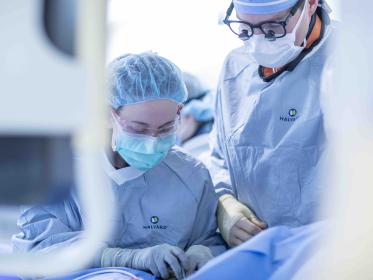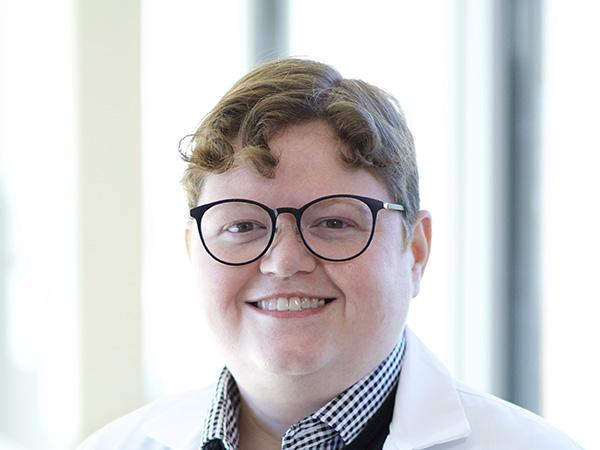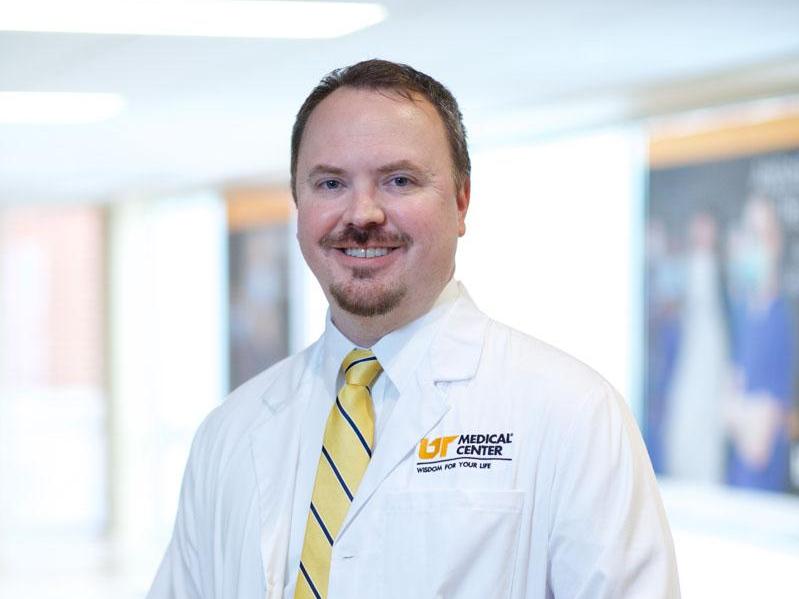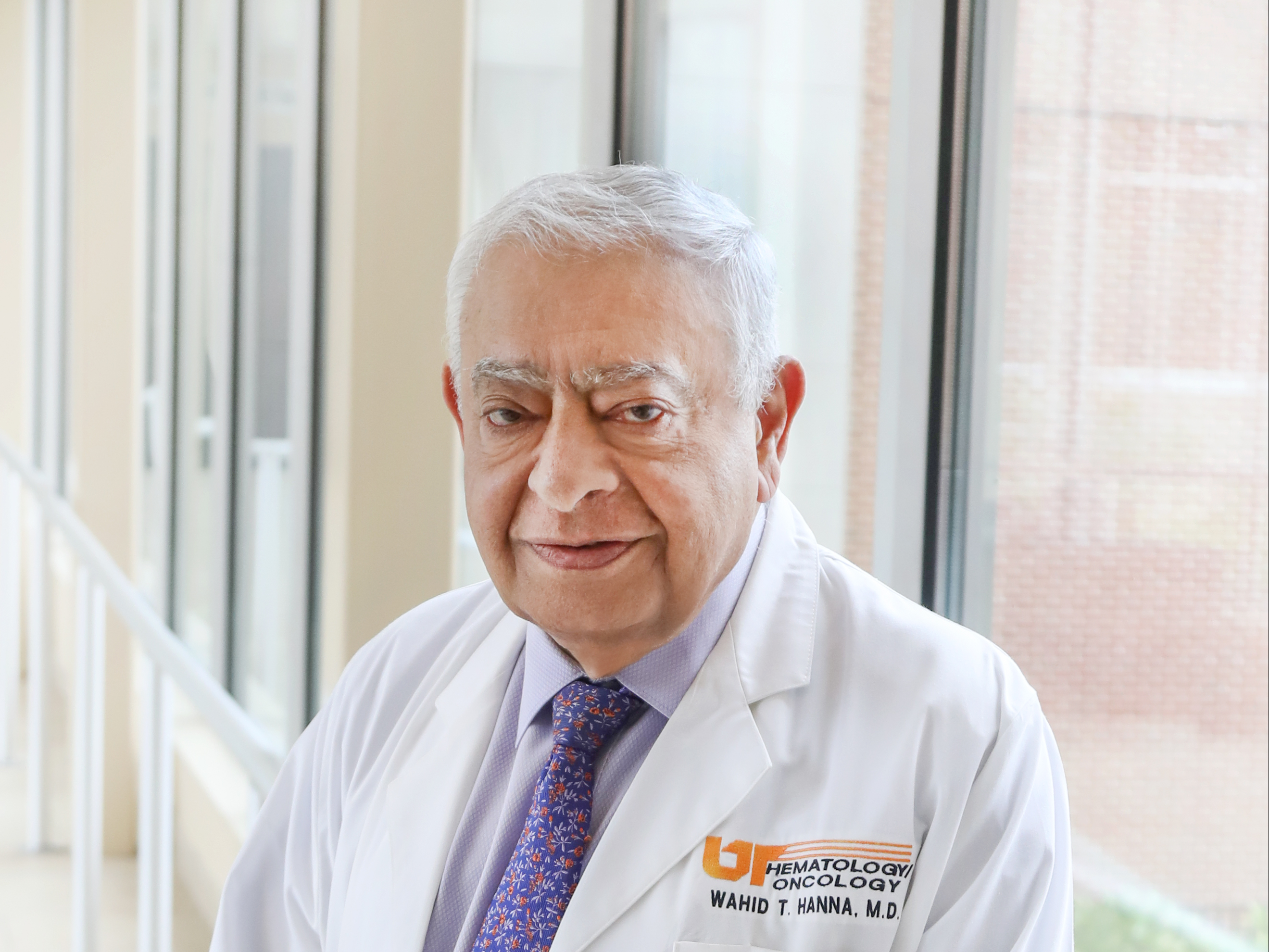Overview
Welcome to the Neuroendocrine Tumor Program at the University of Tennessee Medical Center.
The multidisciplinary team at The University of Tennessee Medical Center provides advanced multidisciplinary care for patients with neuroendocrine tumors. Neuroendocrine tumors are a complex and diverse set of disease processes which require coordinated treatment and follow up care. At UT Medical Center’s Cancer Institute, our patients have access to the latest diagnostic and comprehensive treatment options. When this rare diagnosis is suspected, it is essential to undergo a comprehensive evaluation by an experienced, dedicated team of neuroendocrine tumor specialists. Our treatment team is actively engaged in clinical research dedicated to finding new and effective ways to treat this disease.
Neuroendocrine Tumor Types and Management
Neuroendocrine tumors are a rare set of cancerous and non-cancerous tumors that can be found in any area of the body. These tumors arise from specialized cells which have characteristics of both nerve and hormone-secreting cells. The most common sites that neuroendocrine tumors develop from include the pancreas, intestine, appendix, rectum, and lungs. Symptoms of a neuroendocrine tumor vary and may include pain, fatigue, weight loss, diarrhea, abdominal cramping, wheezing and flushing. Most patients do not present with early-stage symptoms leading to these tumors often being diagnosed at later stages. Neuroendocrine tumors may spread to the liver and other organs which requires careful selection of the best treatment options.
Neuroendocrine tumors may also be classified as functional or non-functional tumors. Functional neuroendocrine tumors produce extra hormones which may cause specific symptoms depending on the hormone produced. Non-functional neuroendocrine tumors do not release hormones and often present at later disease stage, often with disease spread.
Advanced Neuroendocrine Tumor Surgery
At University of Tennessee Medical Center’s Neuroendocrine Program, our surgeons are specialty-trained and dedicated to the care of patients with neuroendocrine tumors, including diseases that affect the:
- Pancreas
- Liver
- Stomach
- Small intestine
- Adrenal Gland
- Thyroid
- Lung
- Colon and rectum
Surgery is a primary treatment option for patients with neuroendocrine tumors. Our fellowship trained surgeons perform numerous endocrine and neuroendocrine surgeries each year. When a neuroendocrine tumor is confined to its original organ, it can often be cured with surgery alone and no further treatment may be necessary. When neuroendocrine tumors spread, they most often spread to the liver. At UT Medical Center, our patients have access to the latest techniques to treat neuroendocrine liver metastases including intraoperative ultrasound, tumor ablations, and parenchymal-sparing tumor resections. These procedures can remove or treat numerous liver tumors without destroying healthy liver tissue. Our surgeons use minimally invasive surgical techniques such as laparoscopic surgery and robotic surgery, when appropriate.
Our multidisciplinary team of experts is committed to providing comprehensive and evidence-based strategies to neuroendocrine tumor management which includes genetic testing, medical treatments, complex neuroendocrine tumor surgery, locoregional treatments, and systemic therapies.
Why Choose Us for Your Neuroendocrine Tumor Care?
At the University of Tennessee Medical Center Cancer Institute, we know that each neuroendocrine tumor is unique, and each treatment plan should be individualized. Our team of specialists will work with you and your loved ones to provide a comprehensive treatment strategy based on your preferences and unique disease.
- The Neuroendocrine Program’s multidisciplinary site-specific tumor board is held weekly and attended by trained specialists committed to the care of patients with neuroendocrine tumors. At this conference, each patient’s unique case is reviewed by medical oncologists, radiation oncologists, surgeons, radiologists, pathologists, and other specialists who collaborate to develop the best individualized treatment plan.
- Innovative surgical techniques for removal of neuroendocrine tumors are available, including minimally invasive and robotic approaches.
- Advanced diagnostic imaging, such as Gallium- and Copper-DOTATE/PET Scans using radiotracers that are specific to identifying neuroendocrine tumors, are available. These specialized tests are administered under the direction of a specialized physician trained in nuclear medicine.
- Novel therapies such as Peptide Receptor Radionuclide Therapy (PRRT), a targeted molecular therapy which delivers radiation directly to tumor cells without injuring the healthy tissues, are available and provided by our team of experts.
- Clinical Research studies are open for patient enrollment which include investigative studies into the latest neuroendocrine therapies and surgical treatment options.
- Genetic counseling is offered by certified specialists and counselors who are experienced in the care of patients with hereditary tumor syndromes such as Multiple Endocrine Neoplasia (MEN) and Von Hippel-Lindau Syndrome. Our team will review your family history to decide whether genetic testing is right for you or your family. A certified genetic counselor will work with you and your family to determine the best options for genetic testing.
Your Next Steps
If you or a loved one has been recently diagnosed with a neuroendocrine cancer, we are here to help. The Cancer Institute’s Gastrointestinal Tumor Service (GITS) nurse navigators provide easy access to a multi-disciplinary team that specializes in the diagnosis, treatment and follow-up care of patients with neuroendocrine and gastrointestinal tumors. GITS is designed to expedite the care of patients referred with symptoms or findings suspicious for a malignancy or a confirmed cancer diagnosis. The GITS nurse navigator assists with the coordination of each referral while providing information, education and support for patients and their families. In partnership with the referring physician, the GITS will work to determine and complete the specific plan of care. Patients may be referred for only special diagnostic procedures or treatments and then returned to the referring physician for completion of their care plan and follow-up. Patients will be referred to University Surgical Oncology or University Surgeons Associates with board certified surgeons who are experts in the treatment of neuroendocrine tumors. To reach the GITS navigation team for a referral, call (865) 305-4487.
Our Cancer Institute team is here for you in what can be a very stressful time. Please don’t hesitate to ask questions and request help when you need it. You can reach the Cancer Institute by calling (865) 305-6055. Our new patient section will provide you additional information about the Cancer Institute and everything you need to know to prepare for your first visit.









